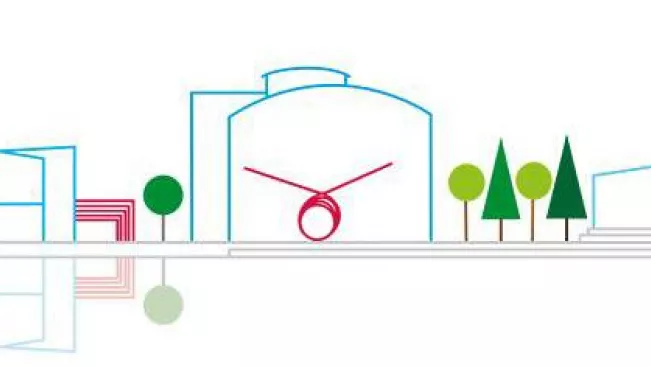Communications and Marketing
NRW graduates 2016: Successful in their studies and careers

The Institute for Applied Statistics (ISTAT) has now presented the third state report, based on surveys conducted by the participating universities of their graduates on their experiences during their studies and the transition from university to work.
Studies in the standard period of study
Almost half (49 per cent) of H-BRS graduates complete their studies within the standard period of study. The national average across all types of universities is only around 40 per cent. In general, students at universities of applied sciences more often complete their studies within the standard period of study (45 per cent) than at universities (38 per cent). The authors of the report found that women are more likely to graduate within the standard period of study than their male counterparts, both at H-BRS and at universities of applied sciences and universities in NRW as a whole.
However, a comparison of the 2011 and 2014 graduating classes shows a downward trend for such fast-track studies. The study cites the tuition fees still charged in 2011 and the introduction of bachelor's degree programmes as the reasons for this.
Student satisfaction
The H-BRS can also boast excellent results in terms of student satisfaction: at no other UAS or university in the country is the average satisfaction rating as high as here. More than 80 per cent rate satisfaction as high or very high. On average across the country, only just under 70 per cent of university graduates and around 74 per cent of HAW graduates rated their student satisfaction as high or very high.
Contact with lecturers and other students, the facilities and the organisation of studies were rated particularly highly at H-BRS.
Transition to Master's programme and career
The proportion of graduates who go on to study for a Master's degree after completing their Bachelor's degree varies depending on the degree programme and type of university. At the time of the survey, around one and a half years after completing their Bachelor's degree, around 47 per cent of HAW graduates and around 82 per cent of university graduates in NRW had taken up a Master's degree course. At H-BRS, the transition rate to a Master's degree programme is even around 56 per cent. Graduates of science degree programmes have the highest transition rates (88 percent).
As far as employment is concerned, around a quarter of all graduates only start looking for a job after graduating. All others start before. After all, the search takes about the same amount of time across all types of higher education institution at four months.
But one and a half years after graduation, there are clear differences among those who are looking for a job for the first time or again at this point: the rate is 6.1 per cent for university graduates, 3.3 per cent for graduates of HAW in NRW on average and only 1.2 per cent for graduates of H-BRS. In addition, almost half of university graduates (48 per cent) start their careers with a temporary position, while this is only the case for 22 per cent of HAW graduates - and also for H-BRS graduates. In most cases, all graduates have a job that matches their degree programme (universities: 81 percent, NRW-HAW: 85 percent, H-BRS: 88 percent)
The results come from the study "Study and career in North Rhine-Westphalia - academic success and career entry of graduates of the 2016 graduating class from universities of applied sciences and universities", conducted by ISTAT (Institute for Applied Statistics) and 29 state universities in NRW on behalf of the NRW Ministry of Science. The data was collected as part of the overarching nationwide study KOAB (Kooperationsprojekt Absolventenstudien). The results presented are based on the information from 22,339 respondents.
Do you still have questions?

Location
Sankt Augustin
Room
F 220
Address
Grantham-Allee 20
53757, Sankt Augustin
Telephone
+49 2241 865 9637